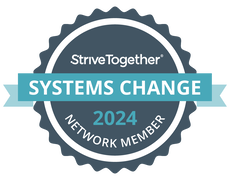|
From May 2007 to May 2016, 1.9 million occupations were added in the healthcare field requiring postsecondary education for entry. This includes nurses who require a bachelor's degree and doctors or dentists who require a doctoral or professional degree.
Credentials are a way companies can measure one’s knowledge. There’s only so much one can see or assume on a resume about someone’s knowledge and what they can or can’t do, so credentials are way to relate one’s human capital and give some value. In a knowledge driven economy, credentials equal skill. “If you look at the lifetime earnings data, the more post-secondary education individuals have, the greater their earnings tend to be. These lifetime earnings typically far exceed the cost of a higher education,” according to Dr. Robert Ducoffe, Provost and Vice Chancellor at University of Wisconsin-Parkside.“That doesn’t mean that people don’t struggle to afford college, it just means it’s still a really good investment. There are also studies that show that people who earn a higher education are more active in their communities, vote at higher rates, are more satisfied, generally, with their lives, and healthier, and they tend to pass these traits on to their children. “Regarding enrolling in college right after high school, the data here are clear as well. The longer an individual postpones going to college after high school, the less likely they are to complete a college degree. Life has a tendency to get in the way of focusing on higher education as people get older, marry, have children, work full-time, etc.” Not all students want a four-year degree. However, many careers that previously did not require a postsecondary credential now do. Beyond a four-year degree, there are a number of options to consider in different fields—many of which are cost efficient. Gateway Technical College has, for example, programs for those interested in going into a more hands on field, like the HVAC/R associate’s degree. In the two year program, students get to work with two homes working with radiant heat in floors, ductwork systems, and high velocity systems. Even a career to become an esthetician or barber requires schooling that may include courses like chemistry or english. When deciding what one enjoys doing with their time be it their passion or skills that they enjoy practicing, looking into the requirements and educational degrees needed for that can help in preparing oneself early on to reach those goals. How to Get Involved
Completing high school is usually a long awaited accomplishment for individuals, especially since many students have already been in a school setting for about 14-15 years by the time they graduate. So some may wonder, why continue education if they have already completed the degree they were promised would secure their future?
Completing high school is just one of many steps towards growth and development as an adult. People are typically finishing their high school degree around the age of 18. At this age, they are first being recognized as an adult rather than a child in the eyes of the government. Meaning: now the age requirement on many jobs is no longer affecting them, and it may seem like their future possibilities are endless. However, by 2020, it is estimated that 62% of Wisconsin jobs will require some sort of post-secondary education or credential. Along with that, those in Kenosha County without these credentials are twice as likely to be in poverty. This could potentially hinder opportunities students have after graduating high school if they choose not to continue their education towards completing some sort of post-secondary credential. According to our Baseline report last year, only 35% of economically disadvantaged students and 54% of their not economically advantaged counterparts in Kenosha County enrolled in postsecondary education following their completion of high school. Not only that, but only 35% of Kenosha’s population has an Associates degree or higher, compared to 40% of Wisconsin’s population. These data points show us where we as a community stand in our educational fields and help give us a perspective on the life and opportunities our future generations have in their own community. We have the opportunity to raise these statistics and provide more of the choices students believe they have after completing high school. If a student still hasn’t registered for school, it isn’t too late. There are a variety of different educational pathways students can pursue following the completion of high school. Gateway Technical College is always accepting applications and there’s even an opportunity to enroll while you’re still in high school. Want to get a taste of what college is like? Students who’ve completed 10th grade in KUSD and other schools throughout Kenosha County have the opportunity to enroll in the Early College Credit Program (ECCP) where they can take courses at UW-Parkside or Carthage College while still attending high school. With the completion of the course, the student will also receive college credit for that class at no extra charge. Get Involved
|
Categories
All
Archives
April 2024
|




